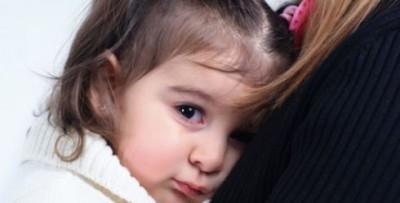Do you know that stress or anxiety are invisible barriers that will prevent your baby from interacting with the world around him? Check out the following things with MarryBaby to learn more about your baby's worries and help them find solutions!
When your child enters a toddler age, parents will be eager to follow each step and the challenges they will face on their development journey. However, some mothers and fathers will find their children not really ready and willing to explore the world independently. In this case, mothers should give the baby a little support! Try encouraging your baby to participate in practical activities to develop essential social skills , which will greatly help your baby's success in later life.
Your baby's anxiety level
Between the ages of 10 and 18 months, it is very normal for babies to be nervous and worried when they are not around. Think about it, if it was us, when we came to an unfamiliar environment, we would also have certain surprises and thrills, let alone the baby. At 10 months of age, babies have a simple understanding of their connection with their parents and begin to feel anxious when they are not around, even for a moment. Even more babies than 18 months old can still be worried like that. Is your baby just a little afraid of strangers or even if you have parents with your baby, are you still afraid of communicating with strangers? Observe your baby's level of action, see if her worries are preventing him from interacting with people. If the baby does not want to be in contact with other people at all, his anxiety and stress are more serious than usual. In this case,

It is very normal for babies to be worried when they are not around.
Signs to recognize
Have your kids ever nagged, bawled and clingy every time you plan to go somewhere? Don't scold your baby, that's how they show their worries! Babies at this age when stressed and anxious will manifest themselves by crying or clinging to the legs of someone they trust because they have not learned any way to help them cope with their fears. With older babies, mothers will find it difficult to recognize the baby's discomfort because they will less likely show their stress and anxiety outward. Instead, your baby will tend to separate himself from the crowd and hide in a quiet corner. Children react like this because at this time, their coping skills have been developed better, so they know how to "handle" their emotions. At this time, the mother even has to "work harder" than that!
>>> See more: Children from 18-24 months: Developing children's language and behavior
Help your baby relieve stress and anxiety
If your baby feels anxious about being in an unfamiliar space, don't take the risk of taking him to too many new places. Instead, why don't you try to give your baby 1-2 new places, meet a few new friends and then regularly visit these places, meet these new friends to create a familiar feeling for your baby. From there, the baby will gradually reduce stress and anxiety when communicating in a new environment with new people. When your baby discovers new things, mothers should stay with them to help them feel more confident.
>>> See also: Emotional communication with children
When you see your baby has become more familiar and active when exposed to new things, you can reduce your "help". Let your baby learn to adapt to the situation and know how to manage his own stress and anxiety. It is important that you do not forget to praise your baby for positive expressions! Let your baby know how happy and proud you are to see your baby playing with you. As a result, babies will have more motivation to repeat their positive behaviors without knowing that they are self-correcting their psychological problems.
When do babies need medical intervention?
Most of the baby's stress and anxiety can be "suppressed" by simple intervention from parents. However, in some serious cases, you should seek the help of doctors and medical experts to help your child overcome this stress and anxiety. If your baby's psychiatric problems do not go away even after working hard and applying medical interventions tailored to your baby, talk to your treating doctor about your baby's psychological challenges that you have just witnessed. Do not ignore the baby's signs, it may be more serious than you think and you cannot handle it on your own. On average, 1 out of 8 babies is more likely to be affected by an anxiety disorder. And only the doctor can determine the level of your child's condition to provide the best treatment for your kid.












